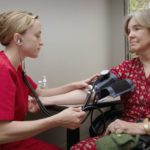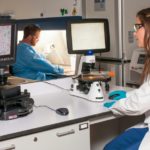
Preparing Well for Virtual Residency and Fellowship Interviews
For many years, interviews for residencies and fellowships in hospitals in the United States, Canada and other countries was done in person.
A potential candidate would have to drive or fly to the hospital city, drive or get transportation to the hospital, and have the interview – or interviews – all in a tight schedule.
Virtual interviews are the new norm.
The power of the virtual interview has grown tremendously over the past several years, for a number of good reasons.
For some doctors, virtual interviewing is something they can handle. For others, the traditional interview process – shaking hands, body positioning – is something they are familiar and comfortable with.
For foreign-trained doctors, navigating and preparing for virtual interviews can be more challenging as there is the potential language barrier to overcome.
Here are some ideas to help with virtual interviewing.
Preparation is everything
Preparing for a standard interview is the best strategy to do well in your interview.
This means reviewing questions and coming up with answers that highlight your abilities and qualifications.
Reviewing questions can come from typical question sets.
Why did you go into medicine?
Why are you interested in our program/our hospital?
Questions specific to the program or field need to be reviewed thoroughly as well.
What are the workup plans for a patient with ____?
The groundwork for you is to answer the basic, fundamental questions:
Who are you?
Where are you going?
These two questions are your core.
Preparing for an interview DOES NOT MEAN memorizing answers.
This is a common mistake that foreign medical doctors make.
Of course, the English barrier is one motivating factor for doing this. Having a well-prepared answer minimizes error and makes the speaker sound organized and ready.
Interviewers can tell if you are speaking rehearsed or rehashed phrases. That is something they are exposed to several times a year.
Preparation gives you a 95% strong performance.
Having a general framework for an answer is very important. This can include a rough template of what you want to say and how to say it. Yet, it should not be memorized word for word.
You have to be prepared for changes to a typical question, and that is why memorization can hurt your chances.
According to experts at the American Society of Transplant Surgeons, standard interview preparation can result in a 95% strong interview performance.
Know that there will be challenging questions
As stated above, standard questions may be changed in any interview by any interviewer.
While the challenges in questions get more complicated as you apply for fellowship positions, residency candidates should also get in the habit of having some core idea about how to answer them.
There are behavioral questions and situational questions, both of which have different focuses.
A behavioral question would focus on what you did.
Consider this question:
Tell me about a time you were observing a procedure, and the lead doctor asked you to take over a part of it that you had never done before.
What kind of question is this? Behavioral as it is asking about the past.
A situational question would ask you to think what you would do in that case or circumstance; in other words, in theory.
However, you can also change the question to a situational question:
What would you do if you were observing/assisting in a procedure, and the lead doctor asked you to take over a part you have never done before?
How would you answer these questions?
Questions may also come from a variety of different background themes.
They can be derived from all areas of modern life: religion, sexuality, gender, race/ethnicity, economic.
Have you had any experience with Jehovah’s Witness patients? What was the outcome?
It is always best to use your experience and be honest. If you have not encountered anything an interviewer asks, treat the question as a situational – theoretical – one.
The right environment makes an impact
As virtual interviews are done over Skype or Zoom, the advantage is that you do not need to travel or be in a specific place for the interview.
Despite the ease of using Skype or Zoom, it is important to know that your environment in the interview can make a difference.
Tips for the Right Environment
Your interview area should be set up so you have no distractions – for you and for the people you will be speaking to.
This means your background should be neutral. By this, either a wall or a window, a bookcase or a corner area.
Your light source should be in front of you, not behind you. If you have a window area, the light still needs to show your face clearly.
While some people invest in professional lights in front and to the side, it is not necessary to go out and spend that money. It is important to work with what you have. Try moving the lights around and checking the image on your monitor.
While most laptops have installed cameras, if you are using a desktop, you want to get a good, quality web camera
Make sure your audio settings are set for both your laptop and your desktop. Using headphones, while easier to hear, might not be the best way to show yourself in the interview. A portable microphone might be a good investment.
A good chair is also a must. You might be doing interviews all at once. One doctor I have worked with had interviews with 12 doctors in one day, one after the other. Having a good, comfortable chair makes a difference to your body, your posture and your confidence.
Lastly, you have to minimize all other distractions.
This means turning off phones and notifications on your laptop/desktop.
You should also inform everyone around you of your schedule, especially if you are interviewing from your home.
Preparing your technology
It is important to know whether your interview will be done on Skype or on Zoom; there could be potentially other applications that are used in-house by hospitals.
You should have everything downloaded onto your computer that you will need to use.
You will need to have an account set up for Skype to use. For Zoom, it might be a good idea to have an account created – it will make it easier for perhaps second round interviews.
Your web camera and microphone should be working with the best conditions possible. Again, you will need to test it out not only with the self-check systems built into the software, but also with a coworker, friend or family member.
While it probably won’t happen, it is important to think of technological problems with computers and Internet communication – sudden restarts, wifi issues, power supply problems.
It is a good idea to have a backup ready. This could be a mobile phone, tablet or another computer that you can have on hand in case something goes wrong.
With all this, preparing well and having the right environment and mindset is key to doing well on your interviews.






